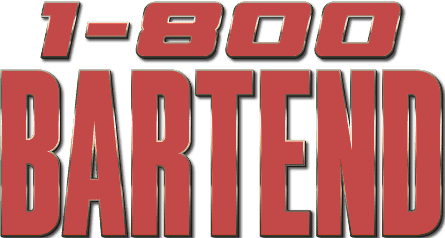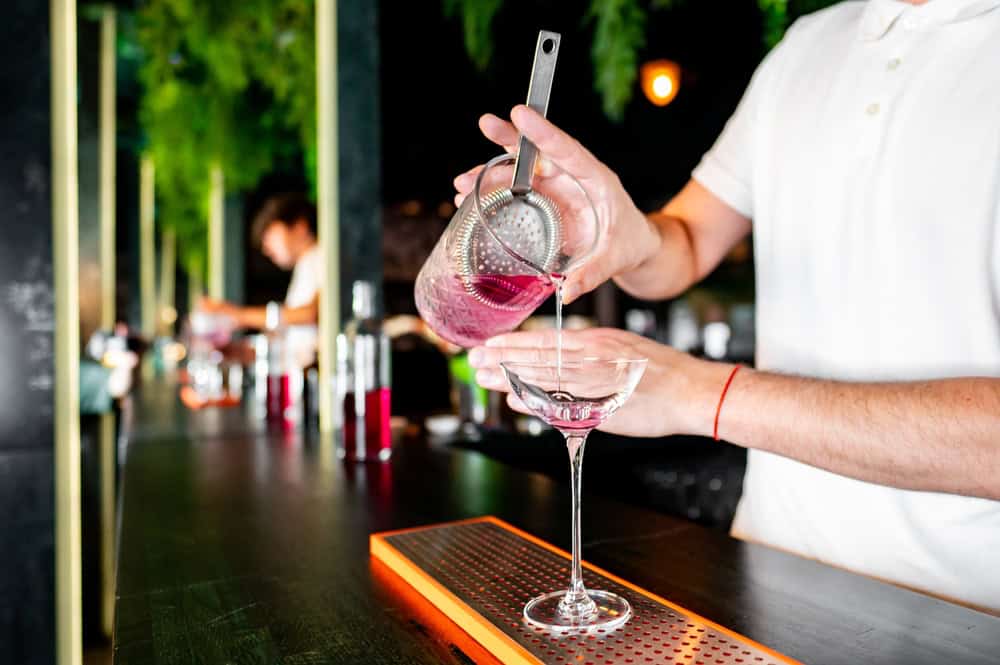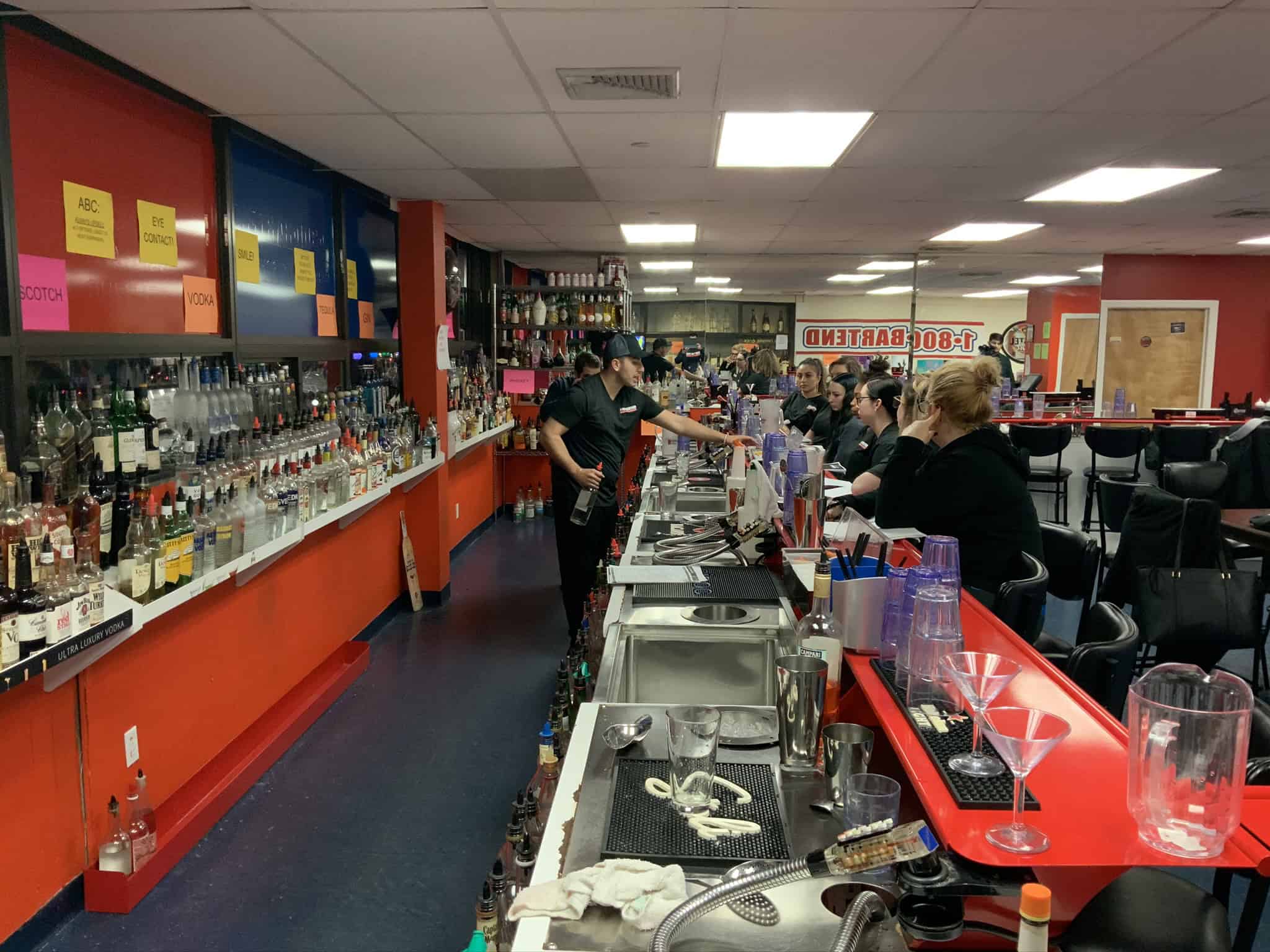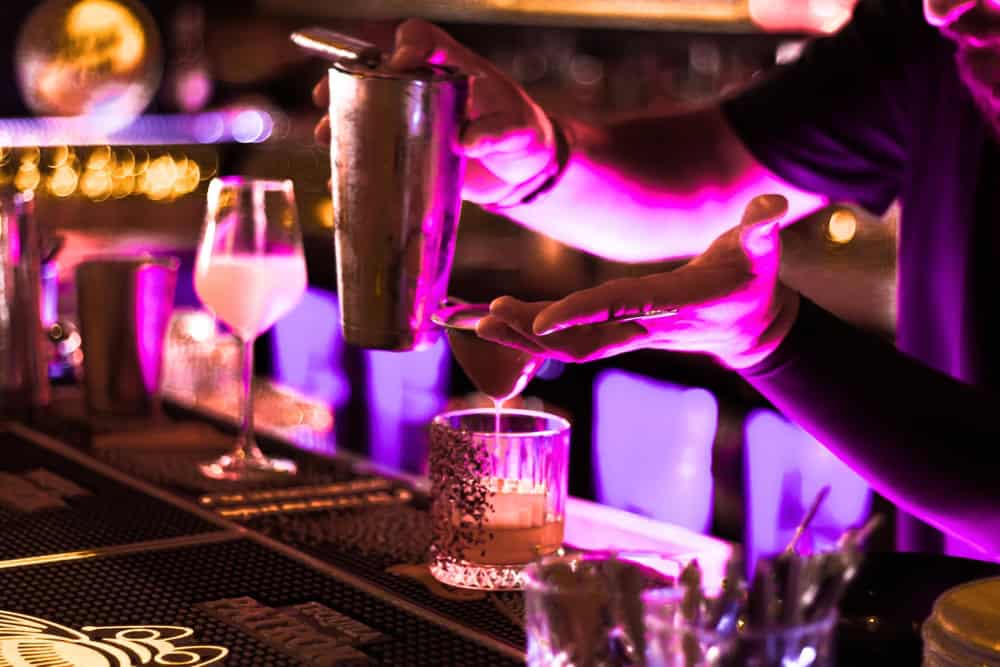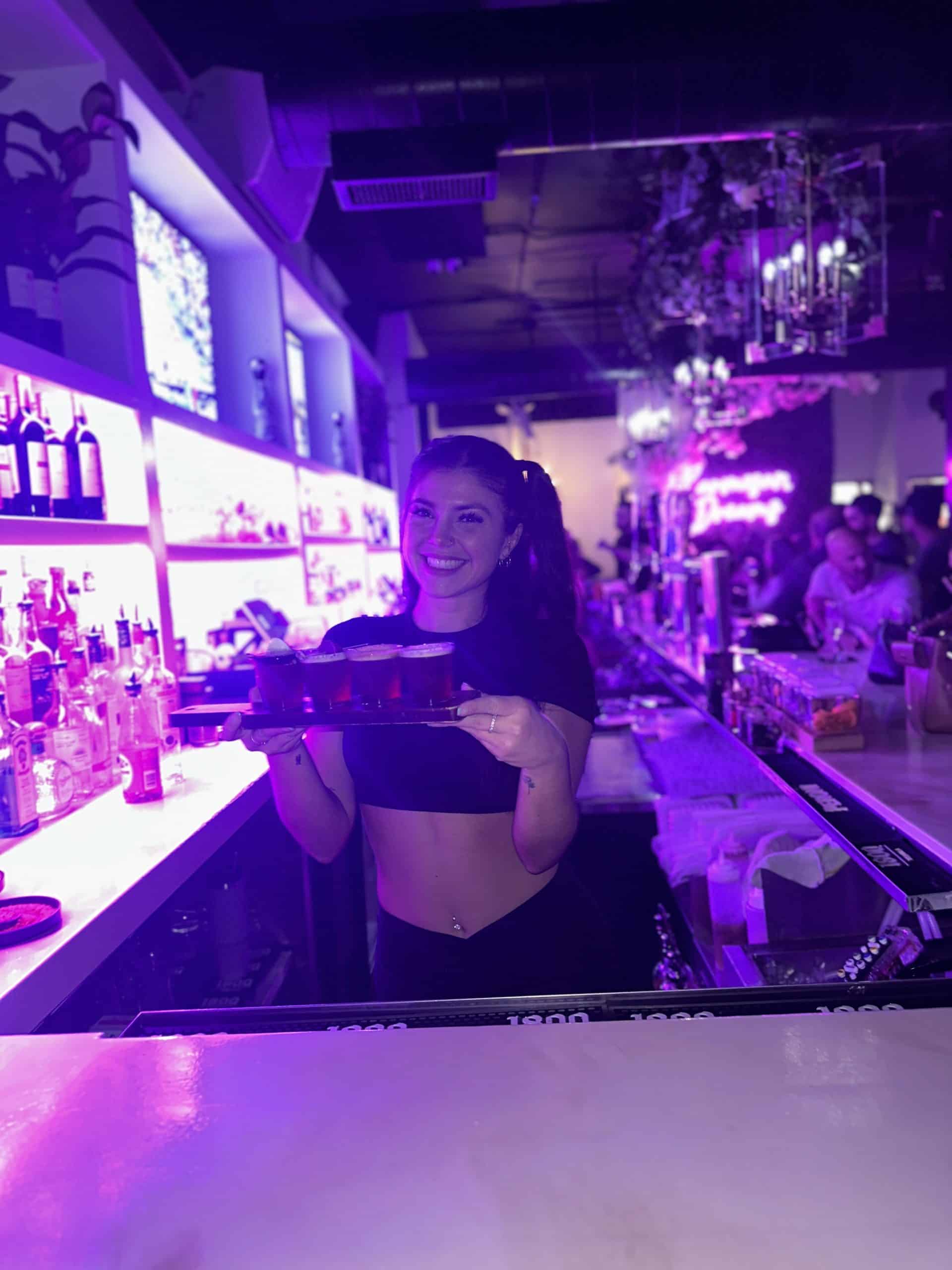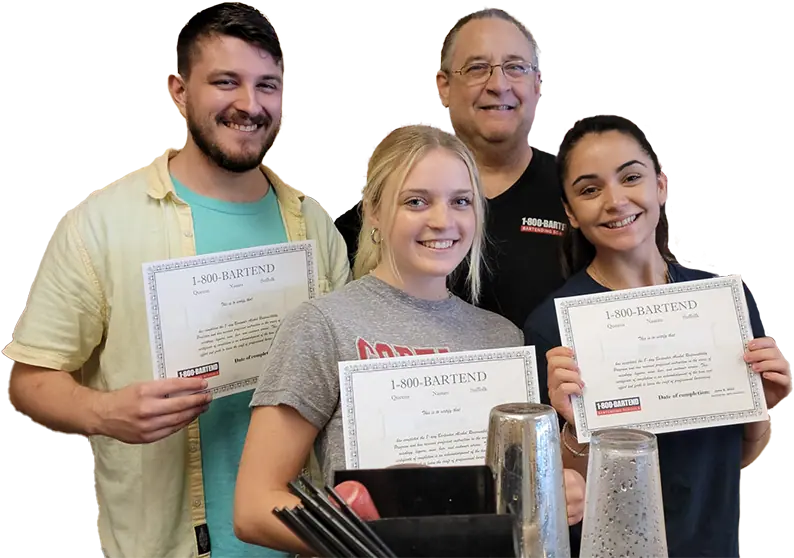Summary:
Laying the Groundwork: General Bartending Classes Versus an Immersive Mixology School Experience
General bartending classes are designed to build your essential skills, preparing you for the realities of a bustling bar environment. Before you can innovate, you need a solid foundation. Imagine a popular Long Island venue on a Saturday night, with over 200 drink orders potentially coming in per hour; your ability to prepare a gin and tonic quickly and correctly is paramount. These foundational courses concentrate on equipping you for high-volume, fast-paced settings. You will become proficient in preparing the 50-75 most frequently requested drinks, mastering precise free-pouring techniques—aiming for accuracy within 1/8th of an ounce to maintain drink consistency and control costs—and learning to operate point-of-sale systems. A critical component is rigorous instruction in responsible alcohol service, which is vital for preventing costly over-pours that can diminish a bar’s nightly profits by as much as 10%. You’ll become familiar with standard bar tools such as jiggers, pour spouts, various shakers, and strainers, alongside an understanding of common spirit categories like vodka, gin, rum, tequila, and whiskey, basic mixers, and the appropriate glassware for a wide array of drinks. This groundwork readies you to step behind the bar with confidence.
The mixology school path at 1-800 Bartend is for you if your aspiration is to transcend standard recipes and truly create. Patrons at more upscale venues or specialized cocktail bars are often in search of novel flavor combinations and artistic presentations, frequently valuing such handcrafted mixology drinks at $15 to $25. This educational journey delves into the ‘why’ behind the ‘what’ of cocktail creation. You will explore the science of flavors, understanding how sweet, sour, bitter, salty, and umami sensations interact and balance within a drink. The curriculum examines the rich history of cocktails, the intricacies of spirit distillation processes, and the art of harmonizing ingredients to develop something entirely new, rather than merely replicating existing recipes. This involves a deep appreciation for how, for example, a particular bourbon’s unique mash bill (the mix of grains used in its production) will influence its interplay with specific bitters, sweeteners, and other modifiers. You’ll learn advanced techniques such as crafting your own unique syrups and infusions—picture a thyme-infused simple syrup adding an herbaceous note to a gin cocktail, or a chili-infused tequila bringing a pleasant warmth to a margarita. You will also study the critical role of dilution in achieving the perfect taste and texture, master advanced shaking and stirring methods like the dry shake for frothy egg white cocktails or the Japanese hard shake for optimal aeration and chilling, and practice the creation of elaborate garnishes that add a final flourish of artistry.
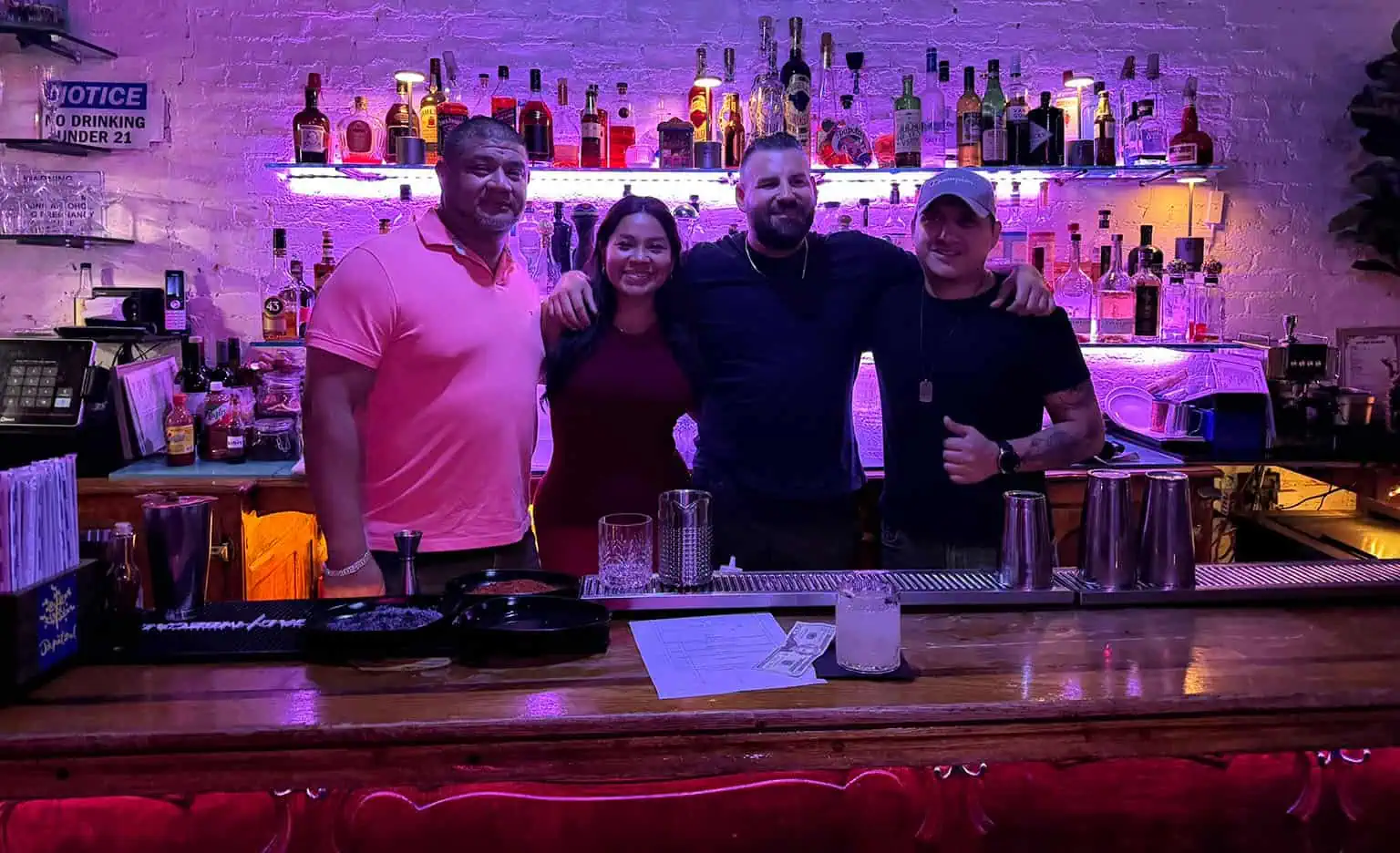
Specialized Bartender Training Techniques You'll Master
Simply memorizing a list of recipes will not set you apart in today’s competitive beverage industry. Customers truly notice and appreciate the small details and refined techniques that transform an ordinary drink into an extraordinary experience. The specialized bartender training you receive at 1-800 Bartend incorporates intensive hands-on practice of methods designed to refine your craft. You will learn the nuanced art of flavor balancing, enabling you to adjust drinks intuitively. For instance, if a guest indicates their margarita is a bit too tart for their preference, you will possess the knowledge to correct it swiftly with a precise addition, perhaps a 1/4 ounce of agave nectar, understanding how subtle adjustments can dramatically alter the flavor profile. Furthermore, your skills with garnishes will extend far beyond the rudimentary lime wedge. You will practice creating sophisticated citrus peel twists that release aromatic oils, dehydrating fruit wheels to craft garnishes that are both visually stunning and longer-lasting, and even preparing herb-infused ice cubes that slowly release their flavors as the ice melts. Imagine presenting a high-end gin cocktail with a perfectly clear ice spear containing a delicate orchid frozen within – a testament to your attention to detail. You will also learn about visual presentation, including layering techniques to create drinks like the Pousse Café, where liqueurs of differing densities form beautiful, distinct stripes, or how to employ natural colorants, such as butterfly pea flower tea, to concoct mesmerizing color-changing cocktails. This kind of visual flair not only delights the patron but can also make a drink highly shareable on social media, organically promoting the venue.
The Significance of Your Bartender Certification and Liquor License Training
Serving alcoholic beverages carries with it considerable legal and ethical responsibilities. A single violation, such as serving a minor, can result in severe consequences for a bar, including fines that can exceed $10,000 in New York State, or even the suspension of its liquor license. Therefore, your bartender certification, obtained upon successful completion of your studies at 1-800 Bartend, serves as a formal acknowledgment of your competence not only in the art of drink-making but, critically, in the principles of safe and lawful service. Integrated directly into your curriculum is comprehensive liquor license training. This training ensures you are thoroughly familiar with New York State-specific laws and regulations. You will learn reliable methods for identifying fraudulent identification, such as using blacklights, carefully checking for holograms, and assessing the texture and quality of the ID card. You will also cover legal serving hours, understand the implications of dram shop laws (which can hold establishments liable for harm caused by intoxicated patrons), and recognize the specific liabilities that both you, as the server, and the establishment face. A key part of this training involves learning effective techniques for politely and professionally refusing service to an individual who is visibly intoxicated, thereby minimizing the potential for conflict and reducing the likelihood of incidents by a significant margin, as some industry studies suggest by as much as 70%. This thorough preparation protects you, your patrons, and the business you work for.
Advancing Your Craft: Exploring In-Depth Mixology and Bar Management Courses
Creating exceptional drinks is a skill that can open many doors, but effectively managing a profitable bar program or an entire establishment requires an additional, distinct set of abilities. It’s a common issue in the industry that poor inventory control alone can lead to substantial profit loss, sometimes ranging from 15% to 20%. At 1-800 Bartend, your educational journey can extend beyond the art of cocktail creation. For those of you with ambitions to lead, manage, or even own a bar one day, our bar management courses provide the necessary business acumen. These courses cover critical areas such as inventory management, where you will learn to utilize specialized software and implement efficient systems for tracking stock levels, accurately calculating pour costs (with the goal of achieving an ideal liquor cost percentage, typically between 18-22%), actively minimizing waste through careful practices, and strategically negotiating with suppliers. For example, you will understand how purchasing spirits by the case instead of by individual bottles can yield savings of 5-10% on your procurement costs.
Furthermore, you’ll gain proficiency in cost control and menu engineering. This involves learning how to price cocktails effectively, striking the right balance between ingredient costs and the perceived value by your clientele. You will acquire skills to analyze your menu items, identifying which drinks are highly profitable and popular (often called “stars”), versus those that are popular but less profitable (“plowhorses”), and then strategize menu design and placement to maximize revenue. Customer service excellence is another cornerstone, focusing on advanced techniques for skillfully handling challenging customer interactions, building strong rapport with regular patrons (who can account for up to 80% of revenue in many neighborhood bars), and cultivating an inviting and enjoyable atmosphere that encourages repeat business. Finally, you will explore marketing and promotion strategies, learning how to effectively promote your bar or your signature cocktails, perhaps through creatively themed nights, loyalty programs, or engaging social media campaigns, which have the potential to increase customer foot traffic by as much as 25%, particularly on traditionally slower weekdays or off-season periods.
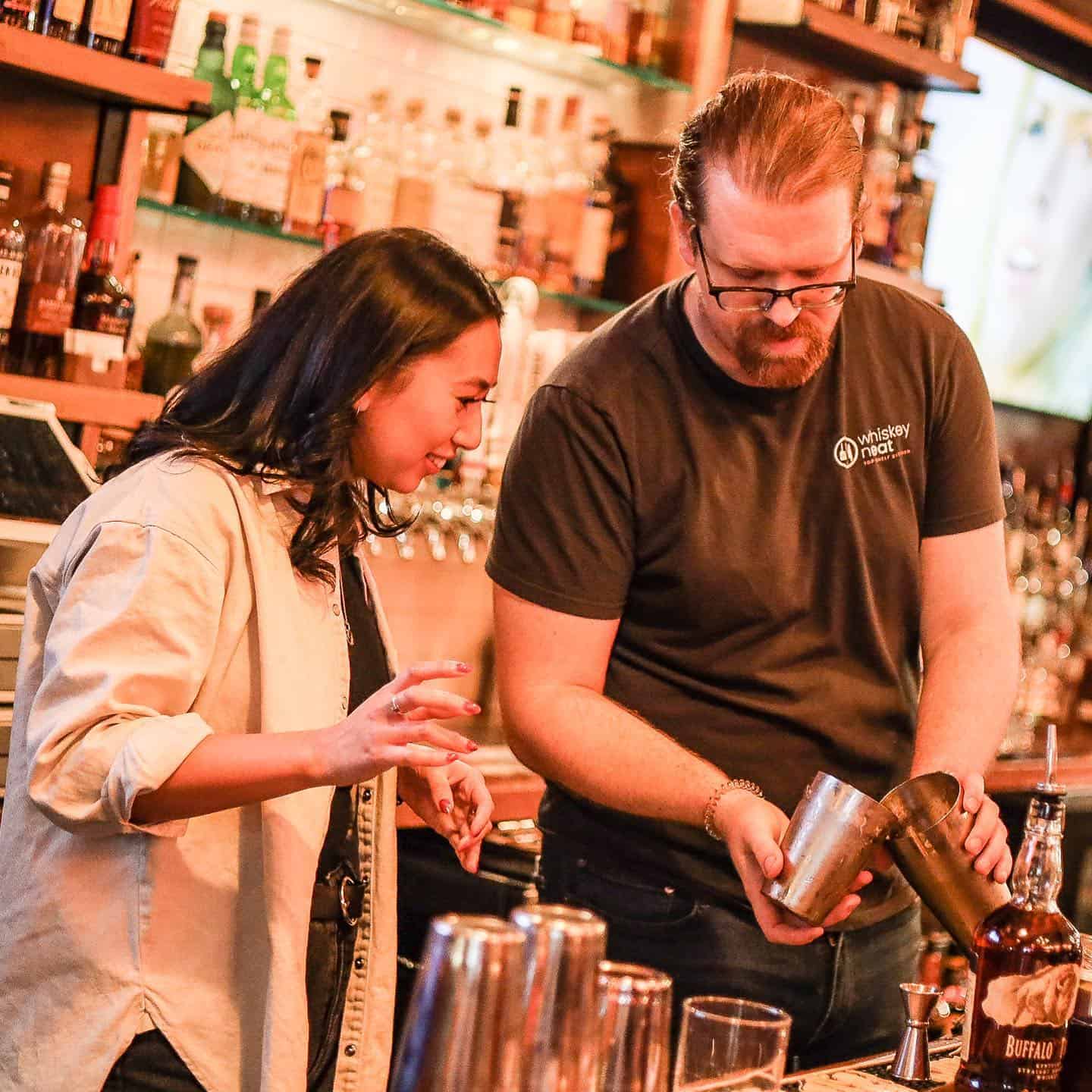
Innovative Mixology Techniques You'll Practice at Our Bar Academy
The world of cocktails is dynamic and constantly evolving. To remain not just relevant but also a sought-after professional, you need to be conversant with and proficient in modern, innovative methods. Patrons, especially in discerning markets like Long Island, are often on the lookout for novel and exciting drink experiences that go beyond the conventional. The mixology school component within our bar academy is designed to introduce you to, and provide hands-on practice with, techniques that truly push creative boundaries. You will explore elements of molecular mixology. While not every bar will feature these advanced techniques daily, understanding the core principles behind methods like spherification (the process of creating small, caviar-like spheres from fruit juices or other liquids using substances like sodium alginate and calcium chloride), the creation of stable foams (for example, a light citrus air to top a cocktail, often made with soy lecithin), or the controlled use of liquid nitrogen for instant chilling or dramatic smoky effects, significantly expands your creative toolkit and understanding of texture and presentation in drinks. You will also learn techniques like fat-washing, which involves infusing spirits with flavorful fats such as bacon drippings or browned butter to impart savory depth and a unique, velvety mouthfeel to cocktails – imagine the rich complexity of a bacon-washed bourbon Old Fashioned. Another advanced method covered is clarification, including techniques like milk-washing punches. This process, which involves curdling milk with acidic cocktail ingredients and then carefully straining the mixture, results in crystal-clear, remarkably smooth cocktails with an improved shelf life due to the removal of particulates and tannins.
The Cornerstone of Your Training: Mastery of Responsible Alcohol Service
An enjoyable night out for your patrons can quickly become compromised, or even dangerous, if alcohol service is not managed with utmost care and professionalism. The consequences of over-service are serious, leading to increased risks of accidents, altercations, property damage, and significant legal liabilities for both the server and the establishment. Because of this, responsible alcohol service is not treated as just another module in your training at 1-800 Bartend; it is a fundamental principle that is meticulously woven into every aspect of your learning experience. You will develop the crucial skill of recognizing the signs of intoxication. This includes learning to identify both subtle and overt behavioral cues, such as slurred speech, noticeably impaired coordination, abrupt changes in mood or volume, and difficulty maintaining balance. You will be trained in systems for monitoring patron consumption discreetly and respectfully, perhaps by mentally using a “traffic light” system (green indicating a patron is fine, yellow prompting caution and closer observation, and red signaling that service must cease). A significant portion of your training will focus on intervention strategies. Through practical role-playing scenarios, you will be prepared to confidently and politely refuse further alcohol service to an individual when necessary, learn how to offer appealing alternatives like water, non-alcoholic beverages, or food, and know the procedures for helping to arrange safe transportation. Possessing the skills to effectively de-escalate a potentially tense situation can prevent a vast majority, estimated at around 90%, of potential conflicts or negative incidents. Throughout your course, there will be constant reinforcement of your legal duty of care and a clear understanding of the serious consequences that can arise from negligence, thereby protecting your future career, the reputation of your employer, and, most importantly, the well-being of every patron you serve.
Chart Your Course in Cocktail Artistry with 1-800 Bartend on Long Island
At 1-800 Bartend on Long Island, the pathways for learning general bartending versus advanced mixology are clearly defined and purposefully distinct. You will find that the training offered is in-depth, equipping you with the specific skills and knowledge necessary to pursue your individual professional goals within the diverse and exciting beverage industry. Whether your aim is to secure a vibrant bartending position where you can confidently serve a wide range of popular drinks, or you aspire to become a respected cocktail creator known for innovative and artistic beverages, the foundation you build here will serve you well. You can move beyond simply serving drinks and truly begin crafting experiences for every guest. Your journey into the captivating world of bartending and mixology begins when you are ready to take that first step. Contact 1-800 Bartend on Long Island today to discuss which professional bartending course best aligns with your personal aspirations and to learn more about how you can successfully obtain your bartender certification and begin your rewarding career.
